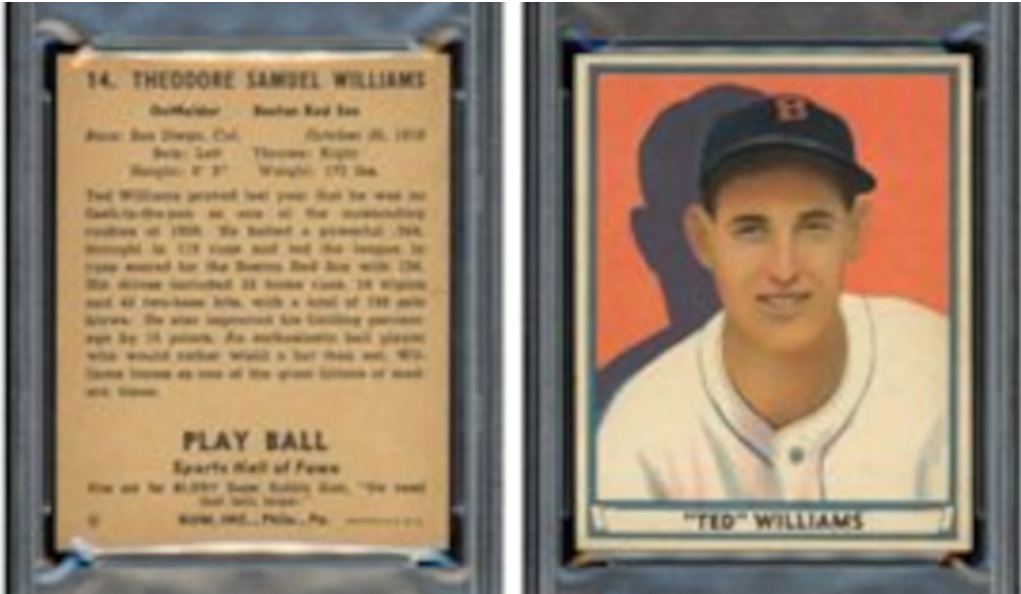When it comes to collectibles that thrum with the nostalgia of yesteryears and the excitement of their ever-soaring value, sports cards stand in a league of their own. Unfortunately, such allure is also an irresistible siren call for pilferers, as illustrated in a burgeoning case that’s captivated the hobbyist realm: a mysterious heist that took place at the unsuspecting Best Western Plus in Strongsville, Ohio. It’s a tale that crosses not only state lines but also moral ones, sparking a legal battle as heated as the World Series itself.
Memory Lane Inc., a treasure trove-like auction house based in sun-soaked California, is now seeking a whopping $2 million in damages after a mishap in 2024 that would make any collector’s heart drop faster than a pop-up fly. Picture this: a sparkling shipment of 54 rare baseball cards, tantalizingly rare and collectible, among them a 1909 Ramly Walter Johnson and a 1941 Ted Williams. These pieces, alone valued at nearly $90,000, were supposed to find their way to the auctioneer’s welcoming arms. However, upon their supposed delivery by FedEx to the Best Western hotel, they were gone, vanished as if in a magician’s trick—the kind you certainly don’t want to witness with a haul that tantalizing.
Investigations would soon peel back the curtain on a ploy as sloppy as an infield error. It turns out, one Jacob Paxton, a hotel staff member, intercepted the alluring package, colluding with an accomplice named Jason Bowling to whisk the cards away under the guise of routine hospitality. Crime, however, is not without consequence (although it seldom returns full value), with Paxton securing himself a cozier long-term stay—behind bars, serving a four-to-six-year sentence. His partner-in-crime, Bowling, danced away with mere community supervision. Yet, the heart of the scandal, the irreplaceable Walter Johnson and Ted Williams, remain on an ignominious version of baseball cards’ “most wanted” list.
Memory Lane’s redress, going beyond mere dollar signs, echoes a hard lesson in the high-stakes world of collecting: reputations are fragile as antique gum wrappers when trust is breached. Thus, the auction house swung for the fences with a lawsuit in July 2025 against both Best Western International and their local affiliates, accusing them of gross negligence. The crux? That the hotel’s hiring oversight was as porous as a rookie league defense, entrusting prized shipments to hands unworthy of the sacred duty of preserving guest properties.
The courtroom drama that such cases engender might set a precedent heard far beyond the halls of judiciary with an audience as riveted as they are scandalized. Could this spell a transformative law in how hotels, in all their opulence, must rise to shield valuable goods? With the defendant boasting a global empire and revenue as vast as its hotel chains, this case might just etch a new chapter in the duty of care narrative.
The theft at the Best Western isn’t an isolated occurrence—it’s symptomatic of a broader illness afflicting the hobbyist universe. Over at the National Sports Collectors Convention, ominous tales of thefts cast long shadows over the hushed buzz of trading floors. A 1951 Bowman Mickey Mantle rookie and a 1986 Fleer Michael Jordan rookie, auction highlights in their own rights, were pilfered from under the noses of heightened security measures in 2025. It’s a haunting refrain for collectors and dealers alike: as these cherished rectangles of nostalgia inflate in financial worth, so too do they attract the shifty-eyed with dexterous fingers.
What’s the counter? An evolution akin to that of fortresses—reinforced glass cases, a bevy of ever-watchful eyes behind security cameras, and insurance policies bulging with added protections are becoming the norm. A prudent, albeit nerve-racking, adaptation to safeguard these new-age treasures, who sparkle as much in a financial ledger as they do in the memories they rekindle.
For Best Western, this courtroom quarrel may very well shape new, more stringent hospitality protocols in handling and securing possessions. Meanwhile, Memory Lane’s call for justice casts a spotlight on the alarming urgency to treat these precious, albeit fragile, pieces of cardboard like the fine art they often share insurance clauses with.
If one message is broadcasted loud and clear, it’s a clarion call echoing through the halls of collections everywhere: while passion and history go hand-in-hand in sports card collecting, a third hand must always adjoin the pair—protection. Let the mighty tale of theft at the Best Western Plus serve as a towering reminder: each card may be two inches of printed cardboard, but their value, sentimental and fiscal, requires nothing less than the security detail of a crown jewel.





